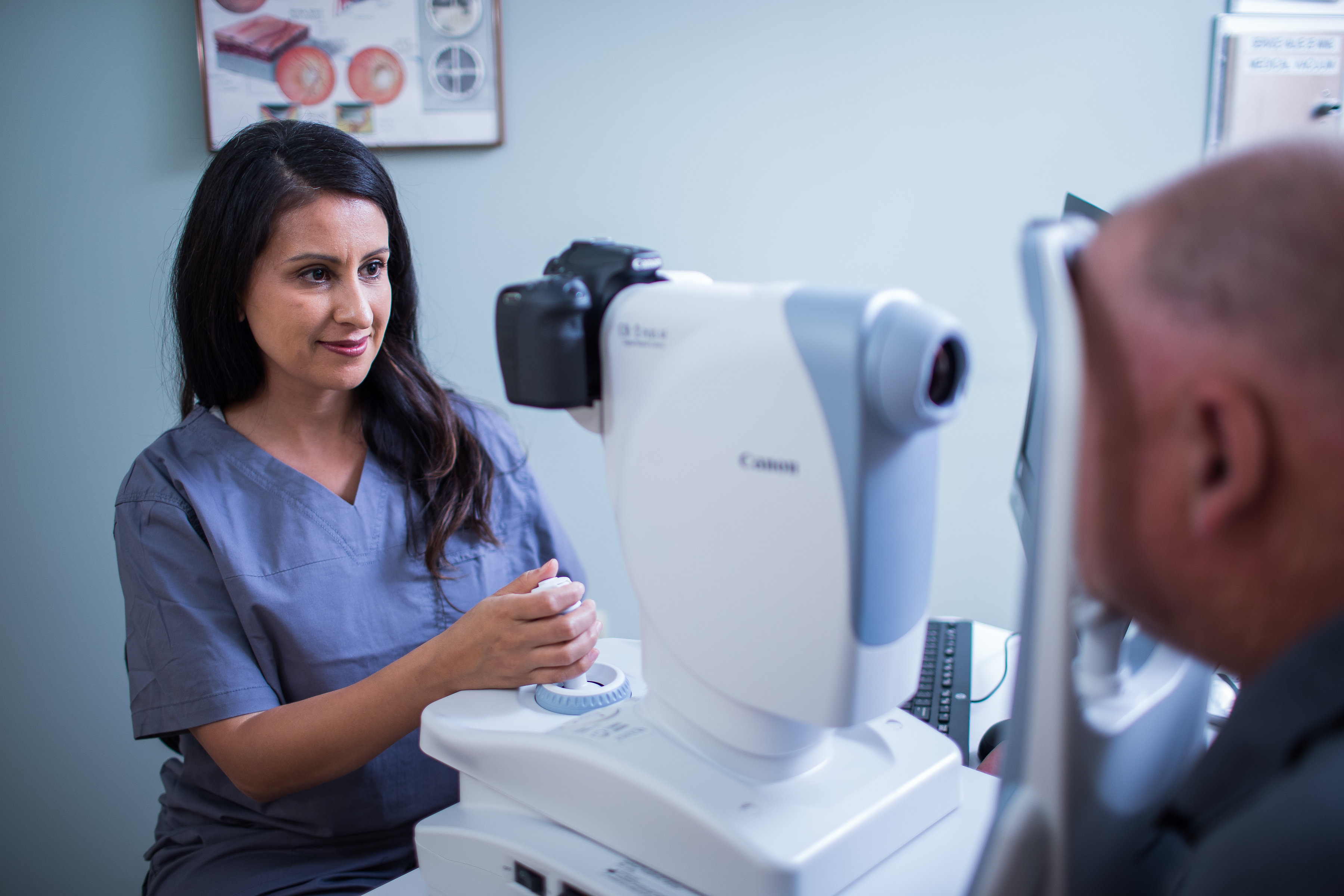Is Refractive Surgery Right for You? Factors to Think About for Better Eyecare
In the realm of eye care, the choice to undertake refractive surgical treatment is a weighty one that requires thoughtful factor to consider. As individuals look for clearness and freedom from the restrictions of corrective lenses, countless elements enter into play when establishing the viability of such a treatment. From the intricacies of one's eye health and wellness to the complexities of day-to-day behaviors and personal expectations, each aspect holds importance in the broader landscape of refractive surgery candidateship. By assessing these crucial elements with treatment and precision, a more clear path towards educated decision-making arises.
Eye Health Evaluation
When thinking about refractive surgical procedure, a comprehensive eye health and wellness evaluation is critical to assess the suitability of the procedure for each and every individual. cardiologist andalusia. This evaluation entails a collection of examinations and assessments performed by an eye care professional to figure out the overall health and wellness of the eyes, the existence of any kind of underlying problems, and the stability of the refractive mistake
Throughout the examination, different aspects are considered, such as the client's case history, present eye prescription, corneal thickness, pupil size, and tear movie quality. These evaluations assist to identify any type of contraindications to refractive surgery, such as corneal abnormalities, cataracts, or unattended eye infections. In addition, the examination assists to manage client assumptions regarding the potential outcomes of the surgery based upon their special eye qualities.
Ultimately, the eye wellness assessment is necessary in guaranteeing the safety and efficiency of refractive surgery, as it provides important insights right into the individual's eye health condition and assists determine the most appropriate treatment alternatives for attaining ideal visual end results. (neurologist andalusia)
Way Of Life Assessment
A complete way of living assessment is integral in determining the suitability of refractive surgery for a person's visual modification requirements. Lifestyle variables such as line of work, hobbies, and day-to-day tasks play an essential duty in the decision-making process regarding refractive surgical treatment. For example, individuals with careers that involve a high degree of exercise or exposure to environmental elements may have various visual requirements compared to those with less active desk work. Comprehending how an individual's lifestyle may affect their vision post-surgery is important for taking care of assumptions and making certain optimum end results.
Additionally, way of living routines such as sporting activities involvement, exterior activities, or also skin care routines can affect the healing process and general success of refractive surgery. By performing a detailed lifestyle evaluation, eye treatment experts can customize their recommendations and treatment strategies to meet the unique demands of each individual, ultimately leading to boosted aesthetic results and fulfillment.
Assumption Alignment

Patients need to comprehend that while several people attain 20/20 vision or much better adhering to refractive surgery, some might still require glasses for particular activities like reading or driving at evening. Managing these assumptions assists stop frustration and dissatisfaction post-surgery, leading to an extra favorable total experience for the person.
Risk Evaluation

Aspects that might raise the threat of complications include age, certain medical conditions like autoimmune diseases, unsteady vision prescription, slim corneas, and unrealistic individual expectations. In addition, picking a skilled and knowledgeable surgeon, adhering to pre and post-operative care instructions faithfully, and divulging any kind of pertinent medical background can aid mitigate threats.
To decrease the possibility of problems, eye doctors conduct extensive pre-operative assessments to recognize any kind of contraindications to surgical procedure. They additionally talk about the possible risks and advantages with people throughout the assessment process. By participating in open communication and shared decision-making, both the individual and the eye doctor can interact to identify if refractive surgery is the ideal selection based upon individual risk profiles and wanted outcomes.
Examination Importance
Considering the crucial role of informed decision-making in assessing risks and potential issues in refractive surgical procedure, the assessment procedure holds considerable relevance in directing people towards ideal outcomes. Throughout the consultation, the ophthalmologist evaluates the client's eye health, refractive mistakes, and overall viability he has a good point for surgical procedure. This first analysis is critical in determining the most appropriate treatment for each person, taking into account factors such as corneal thickness, student size, and existing eye problems.
Moreover, the consultation serves as an opportunity for individuals to review their expectations, concerns, and any inquiries they may have concerning the surgical treatment. Clear interaction between the cosmetic surgeon and the patient is important to make certain reasonable expectations and an extensive understanding of the possible risks and benefits included.
Furthermore, the assessment allows the cosmetic surgeon to describe the different surgical choices offered, their corresponding results, and the post-operative care called for. This comprehensive discussion equips individuals to make well-informed choices about their eye treatment, causing better contentment and outcomes post-surgery.
Final Thought
To conclude, individuals taking into consideration refractive surgical treatment should undergo a comprehensive eye health analysis, examine their lifestyle practices, straighten their assumptions with potential outcomes, examine the affiliated dangers, and focus on assessments with eye treatment experts. These aspects play an important duty in determining the viability of refractive surgical treatment for every person, making sure ideal results and contentment with the treatment.
Individuals taking into consideration refractive surgical treatment often have high assumptions relating to the results, expecting ideal vision without the demand for glasses or contact lenses. While refractive surgical procedure can significantly boost vision and reduce dependency on visual help, it is essential for clients to understand that outcomes might differ based on private variables such this link as the level of refractive error, corneal thickness, and total eye wellness.
By engaging in open communication and shared decision-making, both the individual and the ophthalmologist can work together to establish if refractive surgical treatment is the ideal option based on cardiologist andalusia private risk accounts and wanted end results.
Taking into consideration the essential role of educated decision-making in evaluating dangers and potential difficulties in refractive surgical treatment, the examination procedure holds significant significance in leading people towards ideal outcomes. Throughout the examination, the eye doctor assesses the individual's eye wellness, refractive mistakes, and total suitability for surgery.